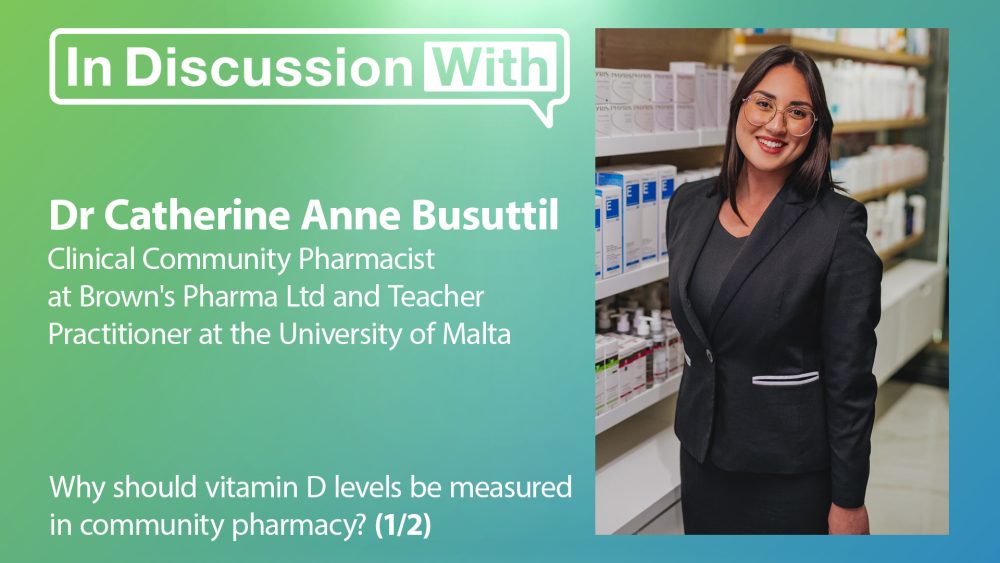Advertisment
Why should vitamin D levels be measured in community pharmacy?

Adequate levels of Vitamin D are critical for satisfactory immune function and this has stimulated interest in point-of-care testing (POCT) in community pharmacies. A pilot study has recently demonstrated the feasibility of such a service. IMI spoke to first author, Dr Catherine Anne Busuttil, clinical community pharmacist, to find out more.
The ability to offer a portfolio of POCT “enhances the role of the pharmacist beyond dispensing”, says Dr Busuttil. Furthermore, “patients benefit from early screening and non-invasive monitoring of diseases coupled with personalised advice and referral as needed”, she adds.
Dr Busuttil is the first author on a recent publication entitled, Establishing a community pharmacist-led vitamin D point of care testing service. Growing recognition of the role of vitamin D in numerous disease states, beyond bone health and increasing demand for vitamin D supplementation to boost immunity during the coronavirus pandemic were two factors that led the researchers to select vitamin D POCT as an area for study, she says. In particular, the absence of readily accessible, inexpensive, non-invasive, quick and reliable methods of vitamin D assessment sparked her interest.
Vitamin D POCT devices
A total of seven POCT devices were appraised, assessing manufacturer, technology used, storage and stability, specimen type, testing time, results, testing range, quality control, service sensitivity and cost. Only three POCT devices were available locally (in Malta), all of which used immunochromatographic technology. One gave a semi-quantitative result which is read by the analyst while the other two require the use of a secondary device to give a quantitative result. The secondary device is a Cube Reader or a mobile phone application.
Dr Busuttil explains: “The device selected for use was the Acro Biotech Inc. Vitamin D rapid test cassette [which gives] a semi-quantitative result, at a cost of 6 Euro per test, not including additional consumables and pharmacy fees. The selected device is very easy to use and is minimally invasive to patient, giving the result within 10 minutes. The lack of need for operators to read the result makes the test most accessible and adapted to ambulatory care settings.”
The device was validated against the gold standard method, which is high performance liquid chromatography tandem mass spectrometry (HPLC-MS), in 20 participants. This was done in the laboratory of the main acute general hospital in Malta. Vitamin D POCT was carried out on the same day as intravenous blood was collected for laboratory measurement of vitamin D levels. “The Cohen’s Kappa [coefficient] was used to assess concordance between the two methods, giving a value of 0.84, which signifies near perfect agreement between the two results”, says Dr Busuttil.
About Catherine Anne Busuttil
Catherine Anne Busuttil holds a Master’s degree in Pharmacy and a Doctorate (PharmD) of Pharmacy. As part of her doctoral studies at the University of Malta she undertook research in the area of vitamin D POCT under the supervision of Dr Francesca Wirth and Professor Lillian Azzopardi. She now contributes to the department as a teacher-practitioner for second year pharmacy students in POCT practical sessions and for postgraduate students on community pharmacy rotations.
Read and watch the full series on our website or on YouTube.





